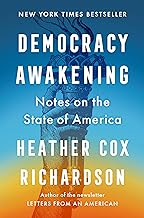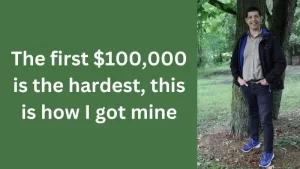Added Note on July 4, 2024, America’s Independence Day
American stock markets are closed today for Independence Day. I wish all Americans a happy holiday.
This blog originally ran in February but in light of the momentous events of the past week, we’re republishing and updating it. In fact, emotions have been so raw the last week that some corners of the web fret that July 4, 2024 may turn out to be the last Independence Day.
I doubt that but the events since last Thursday certainly have grabbed the world’s attention, as well as Canada’s: as ever, when the elephant south of the border sneezes, we in the great white north catch a cold.
Those new developments are of course President Biden’s disastrous debate last Thursday, June 27th, and then this week’s equally dismaying Supreme Court ruling (on July 1) to grant the Former Guy immunity for any official acts while he was president.
If Democracy seemed on shaky footing back in February, it seems doubly so today, roughly four months from the November election. But that’s still enough time to read the four books highlighted in this blog, and perhaps act on them.
Back to the original text in the blog, which has also been revised and updated where appropriate:
While Findependence Hub’s focus is primarily on investing, personal finance and Retirement, Findependence has given me sufficient leisure time to absorb a lot of content on politics and the ongoing battle to preserve democracy and in particular American democracy. What’s the point of achieving Financial Independence for oneself and one’s family, if you find yourself suddenly living in a fascist autocracy?
To that end, I have recently read four excellent books that summarize where we are, where we have come from and where we likely may be going. (Note, this blog is an update of what I wrote in late November, but with two books added.)
In contrast to two of the books mentioned below, Heather Cox Richardson’s Democracy Awakening is disturbingly current and explicitly names names. There is an extensive recap of The Former Guy’s attempt to highjack the 2020 election and the subsequent event of January 6th and everything that has occurred since.
Yes, I’m sick of reading about him too, which is why I don’t even name him here (even on social media accounts I prefer to use 45). But after his deranged Thanksgiving rant and an equally insane Christmas greeting on the soon-to-be defunct Truth Social (aka Pravda Social), his behaviour has become nothing short of alarming.
There is of course no shortage of mainstream analysis of this. I refer Globe & Mail readers to Andrew Coyne’s excellent column in February (link in highlighted headline, possibly curtailed for non-subscribers; also note the hundreds of reader comments:) First, Trump tried to overthrow Democracy. Now he is attempting to overthrow the Rule of Law. After the Supreme Court’s July 1st decision, Coyne also weighed in with his take on July 2nd: The Supreme Court has just removed the last bar to dictatorship.
On other words, what may have seemed alarmist warnings in these books six months ago now seem scarily more relevant and likely to pass. So what do these books actually say about past dictatorships of history and the possibility of another one coming to pass in the not-too-distant future?
Reclaiming America
Richardson is a history professor at Boston College. For Canadians in particular the book is a valuable primer on the founding of America, the Declaration of Independence, the civil war, the Constitution and its many amendments, the creation of the Democratic and Republican parties, and the politics of the last few centuries. I assume most well-read American readers are taught this in grade school (although maybe not, judging by the millions of deluded MAGA zealots.)
The book itself is divided into three main parts: Undermining Democracy, The Authoritarian Experiment, and Reclaiming America.
Richardson make frequent references to Adolf Hitler and the Nazis. As she writes in the foreword:
“Hitler’s rise to absolute power began with his consolidation of political influence to win 36.8 percent of the vote in 1932, which he parlayed into a deal to become German chancellor. The absolute dictatorship came afterward. Democracies die more often through the ballot box than at gunpoint.”
She goes on to write that a small group of people “have made war on American democracy,” leading the country “toward authoritarianism by creating a disaffected population and promising to re-create an imagined past where those people could feel important again.” In other words, MAGA.
I’ll skip to the ending but again urge readers to get a copy and read everything between these snippets:
“Once again, we are at a time of testing. How it comes out rests, as it always has, in our own hands.”

Hitler: Ascent 1889-1939
Even since I wrote the original version of this blog in November, the press has been full of alarming reports of 45’s Hitler-like rhetoric early in 2024: famously his references to vermin and to immigrants poisoning the blood of the American people, both from the original Hitler playbook. And who can forget his “dictator only on the first day,” an alarming recent example of many a truth said in jest?
A two-book series by Volker Ullrich looks first at Hitler’s political rise and then to his decline and defeat in the second World War that he created.The second book is titled Hitler: Downfall: 1939-1945.
While most of us may think we know this history going back to high-school history classes, not to mention numerous histories, novels and films about World War II, Hitler: Ascent is nevertheless a bracing refresher course.
Ullrich charts Hitler’s improbable rise from failed artist to political rabble rouser, to his failed beerhall putsch in the 1920s, his writing of Mein Kampf after a too-short prison sentence and ultimately his stunning January 1933 manoeuvre to become the Chancellor of Germany, which he soon consolidated as combined chancellor/president and ultimately the dictator he is now known to be.
The book also makes clear his goals for creating a Greater Germany at the expense of most of his European neighbours (famously Poland and France), and his plans for impossibly grandiose architectural structures to be implemented by Albert Speer, with Berlin (to be renamed Germania) the centre of what he hoped would be a global dictatorship.
The second Ullrich book — Hitler: Downfall, 1939-1945 — is also well worth reading. The final sentences are particularly relevant to today’s environment:
If Hitler’s “life and career teaches us anything, it is how quickly democracy can be prised from its hinges when political institutions fail and civilizing forces in society are too weak to combat the lure of authoritarianism; how thin the mantle separating civilization and barbarism actually is; and what human beings are capable of when the rule of law and ethical norms are suspended and some people are granted unlimited power over the lives of others.”
Of course, for most of us, reading yet another book (or two) about Adolf Hitler doesn’t usually create undue anxiety, since it all seems to be comfortably in the faraway past. Ancient history, as they say. Continue Reading…







